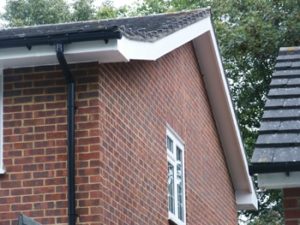fascia-board-repair3219
fascia-board-repair3219
The 10 Most Terrifying Things About Fascia And Soffit Maintenance
Fascia and Soffit Maintenance: A Comprehensive Guide
When it concerns maintaining a house, the importance of exterior aspects like fascia and soffit can not be overemphasized. These elements not just contribute to the visual appeal of a residential or commercial property however also serve important functions in terms of ventilation, moisture control, and structural stability. This article explores Fascia And Soffit Maintenance (visit their website), covering their definitions, functions, common issues, and effective maintenance practices to ensure their durability and efficiency.

Comprehending Fascia and Soffit
Fascia is the vertical board that runs along the edge of the roofing system, generally where the roofing system eaves extend. It holds the gutter system in place and is frequently painted to match or highlight the outside of the home.
Soffit, on the other hand, is the horizontal board that connects the fascia to the home’s outside wall. Soffits are normally vented to permit airflow into the attic space, promoting ventilation and avoiding heat and wetness accumulation.
Functions of Fascia and Soffit
The main functions of fascia and soffit include:
- Protection: They protect the attic and roofing structure from the elements, including rain, snow, and insects.
- Ventilation: The vented soffit permits proper airflow, which helps to prevent mold and condensation in the attic.
- Visual Appeal: Both fascia and soffit contribute to the overall curb appeal of a home, improving its visual interest.
Typical Issues with Fascia and Soffit
Like any part of a home, fascia and soffit can face a range of issues that might compromise their effectiveness. Common issues include:
- Rotting: Moisture and humidity can lead to wood rot in both fascia and soffit, weakening their structural integrity.
- Insect Infestation: Insects, like bees, wasps, and termites, might nest in these locations if left untreated.
- Peeling Paint: As weather and time take their toll, paint can start to peel, detracting from the home’s look and enabling additional moisture infiltration.
- Gutter Issues: Poorly set up or maintained gutters can overflow, resulting in water damage and soil erosion around fascia and soffit.
- Vent Blockages: Dust, particles, and nesting materials can restrain airflow from soffit vents, resulting in inappropriate ventilation in the attic.
Maintenance Tips for Fascia and Soffit
Regular maintenance is important for ensuring fascia and soffit stay functional and appealing. Here are some vital maintenance actions:
1. Routine Inspections
Conduct routine inspections, particularly after extreme weather condition, to look for indications of damage or wear. Try to find:
- Cracks or divides in the fascia
- Signs of rot or mold
- Loose or drooping sections
- Insect activity
2. Clean Gutters and Downspouts
Blocked gutters can result in water pooling, which increases the threat of decomposing fascia and soffit. Make sure rain gutters and downspouts are without particles and working successfully:
- Remove leaves, branches, and dirt
- Flush with water to check drainage
- Clear any obstructions
3. Painting and Finishing
If fascia and soffit are wood, painting or staining them can boost their resistance to wetness and insects:
- Choose resilient, weather-resistant paint or stain
- Repaint every couple of years as needed
- Repair any peeling before repainting to ensure adhesion
4. Guarantee Proper Ventilation
To avoid moisture buildup in the attic, make sure that soffit vents stay clear:
- Remove any obstructions triggered by debris or bugs
- Clear exterior soffit holes to enable appropriate air flow
5. Replace Damaged Materials
If any fascia or soffit boards show significant damage or rot, change them right away to avoid more concerns:

- Use rot-resistant products like PVC or aluminum
- Seek advice from a professional for comprehensive damage
6. Professional Inspection and Repairs
For any major issues, such as pest infestations or serious structural issues, enlist a professional for an extensive maintenance:
- Schedule an annual professional inspection
- Address issues immediately to prevent costly repairs later
Table: Maintenance Checklist for Fascia and Soffit
| Maintenance Task | Frequency | Notes |
|---|---|---|
| Visual Inspection | Regular monthly | Try to find damage, rot, and pest activity |
| Tidy Gutters | Bi-annually | Guarantee effective water drain |
| Paint/Stain | Every 3-5 years | Usage weather-resistant materials |
| Clear Soffit Vents | Yearly | Avoid air flow blockages |
| Change Damaged Sections | As needed | Usage rot-resistant products |
| Professional Inspection | Yearly | Consult an expert for major problems |
Frequently asked questions About Fascia and Soffit Maintenance
Q: How often should I examine my fascia and soffit?A: It is advised
to check these features monthly, particularly after severe weather. Q: Can I paint fascia and soffit myself?A: Yes, lots of homeowners select to do this themselves. Nevertheless, guarantee you follow proper security measures and select weather-resistant paint for lasting results. Q: What ought to I do if I find rot on my fascia?A: If the damage is minimal, you may have the ability to
repair it with wood filler or epoxy. For comprehensive damage, replacing the impacted section is advisable. Q: How does poor ventilation impact my attic?A: Poor ventilation can result in moisture accumulation, which can trigger mold development, structural damage,and increased energy costs due to ineffective heating & cooling. Q: Are there any products that are much better suited for fascia and soffit?A: Yes, vinyl, aluminum, and dealt with wood are popular options due to their sturdiness and resistance to
rot and bugs. Keeping fascia and soffit is vital for maintaining the integrity, safety, and visual appeal of a home. Routine assessments, cleansing, painting, making sure proper ventilation,
and professional interventions when essential can significantly extend the life of these essential parts. Property owners should remain proactive in their maintenance efforts to prevent pricey repairs and guarantee their homes stay protected from the aspects.

